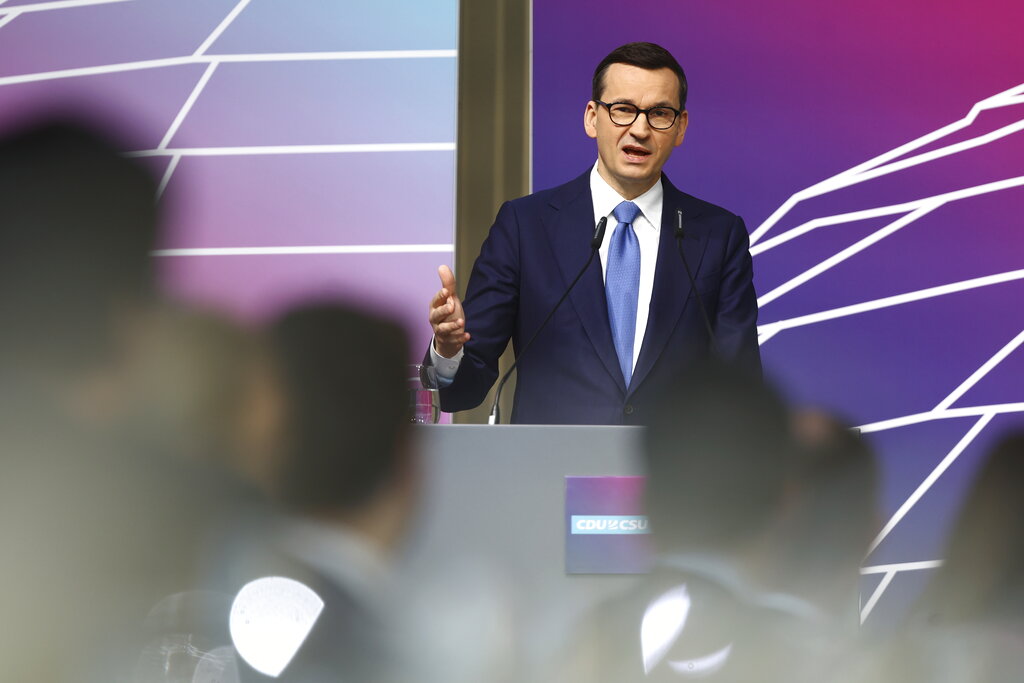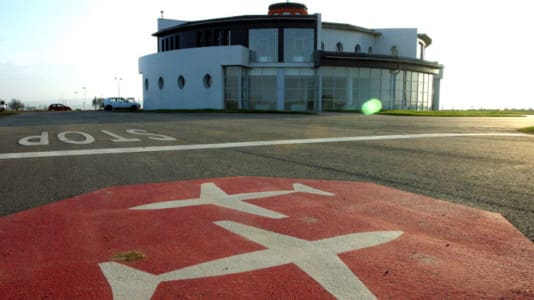The head of the Polish government, Mateusz Morawiecki, visited Berlin on Monday to attend a celebration to mark 50 years of public service by Wolfgang Schaeuble, a former German finance minister and speaker of the Bundestag.
In his speech, Morawiecki stressed that imperialism was the defining feature of Russian policy and said that at present all relations with Russia resembled a “pact with the devil.” The Polish leader called on the German government to take decisive action and supply the weapons needed by Ukraine. He recalled the words of German philosopher Jurgen Habermas from 10 years ago when he said that solidarity and democracy were becoming scarce in the European Union.
Ukraine is fighting not only for its own freedom but also for Europe as a whole, Morawiecki said. He welcomed the fact that Poland’s call for Germany to deliver the Patriot rocket air defense system to Ukraine had been heeded, but warned that any slackening in support could lead to Ukraine’s defeat, which would, in his view, precipitate another world war.
Imperialism is a defining feature of today’s Russia, and relations with Russia were a “pact with the devil,” the Polish leader claimed. According to Russia, an independent Ukraine, the Baltic states, and Poland were incompatible with the existence of a Russian empire, he added.
Morawiecki continued by claiming that the last three decades of “liberal peace” had turned out to be a mirage in which Western Europe had foolishly believed “it could tame the Russian bear,” but Poland, he added, understood better the imperialist nature of Russia, which it had tasted during its history.
It was no surprise for Poland that policies such as “Wandel durch Handel” (“Change through Trade”) and other attempts to tie Europe to Russia turned out to be a failure; these had effectively placed a noose around Europe’s head due to its dependence on Russian gas. However, what for the West is “a business failure” is a matter of life and death for Ukraine, Morawiecki said.
Speaking on Poland’s relations with Europe and Germany, Morawiecki argued that Poland was no junior in Europe but a key part of European identity. He reminded his audience that Poland was one of the oldest states in Europe, the first to adopt a written constitution. He also refuted that Poland was a “young democracy,” saying that the history of Polish democracy dates back to the 15th century. “Poles do not have to be schooled in democracy or the rule of law,” he argued.
The Polish head of government claimed the only thing both Germany and Poland need to learn is how to reach an adequate level of cooperation in building a future for Europe. He added that “unity should not be confused with uniformity.” Morawiecki pointed out that Europe was made up of many cultures and languages, and that the diversity of its heritage was something that should be preserved.
This is why he believes Europe can not continue to be run by just two or three capitals, as this will lead to oligarchy and is contrary to the principles of democracy and the interests of Europe as a whole.






